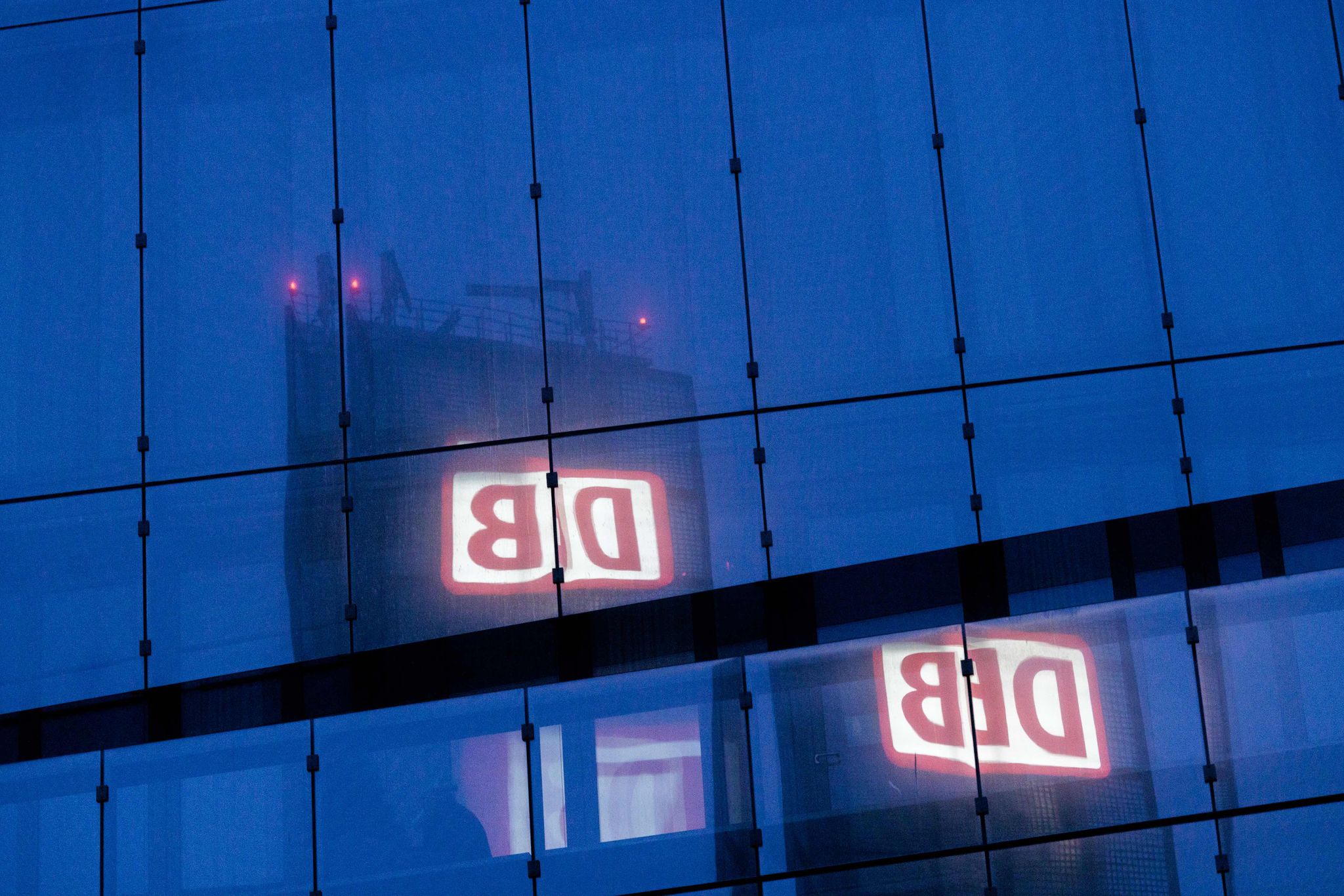The Deutsche Bahn AG logo is reflected in the glass façade of the office building at Berlin Central Station. Deutsche Bahn AG’s annual press conference is being held in Berlin today.
Credit: Carsten Koall/dpa
Despite additional billions in euros for the ailing Deutsche Bahn from the German government’s special infrastructure fund, the chief executive of the state-owned railway believes funding could come up short in just a few years.
“The fact that we are receiving additional money from the special fund is fantastic,” Deutsche Bahn chief executive Richard Lutz told dpa in an interview.
“This is a major step forward, and the entire sector, as well as passengers and freight customers, are certainly grateful to the government for this important signal in favour of rail.”
The trouble is, the money is not enough. It could run out by 2029.
Germany’s rail network has suffered from decades of neglect. The railway estimates the basic need for additional funding by 2029 to carry out necessary renovations and lay the foundation for the digitalization of the rail network at about €45 billion ($53 billion).
“For the budget years 2025 and 2026, which will be decided by the Bundestag in the coming months, we are quite close to these required figures,” said the chief executive of the German parliament’s deliberations.
After that, however, the additional funding needs will increase. Around €17 billion will be missing by 2029. “Whether this funding gap can still be closed will become clear in the coming months and years,” Lutz said.
Last week, the Cabinet decided that Deutsche Bahn would receive around €107 billion for infrastructure investments by 2029, significantly more than was planned in the previous government’s budget. According to dpa information, a large portion of this sum, approximately €81 billion, will come from the federal government’s debt-financed special fund.
General renovation delayed until 2035
Figures for the first half of this year showed more than one-third of all long-distance trains were delayed. According to Deutsche Bahn, around 80% of these delays were due to infrastructure problems and necessary construction work.
To address the issue, Deutsche Bahn plans to renovate dozens of heavily used routes that are critical for nationwide rail traffic in the coming years. However, it recently emerged that the timeline for this so-called general renovation will be pushed back by four years. The last route is now expected to be modernized by 2035 instead of 2031.
On the one hand, Lutz said, extending the timeline has its advantages.
“A stretched timeline is, of course, a good thing in terms of market compatibility,” he said. Pushing through renovations means closed lines for passengers and freight.
But a longer timeframe means the system remains less than optimally functional, risking failure of key facilities.
“There remains a tension between operations and construction, which must be balanced and resolved both in the multi-year renovation programme and in the annual construction site management,” Lutz emphasized.
Politicians hold the purse strings
“In the end, it is, of course, up to the federal government and parliament to determine how much money will flow into the railway system in Germany and thereby significantly influence how the capacity, stability and quality of the rail infrastructure will develop,” Deutsche Bahn’s chief said.
What is clear is that the railway will first invest in its current system rather than focus on expanding.
“Maintaining and renewing the existing infrastructure always takes precedence over new construction and expansion,” Lutz said.








6kgw6u
p6pyne
a0277u
4k63gz